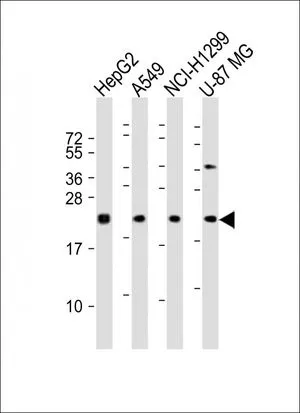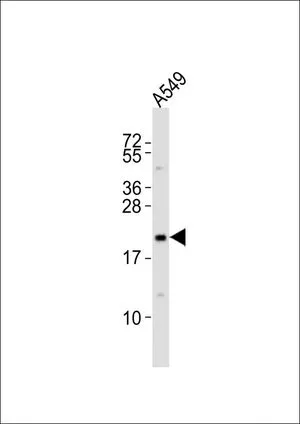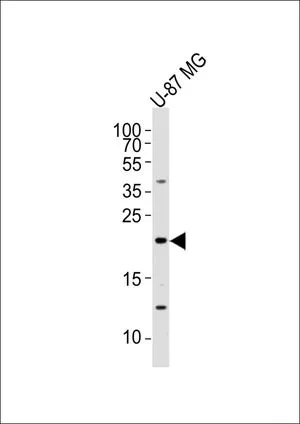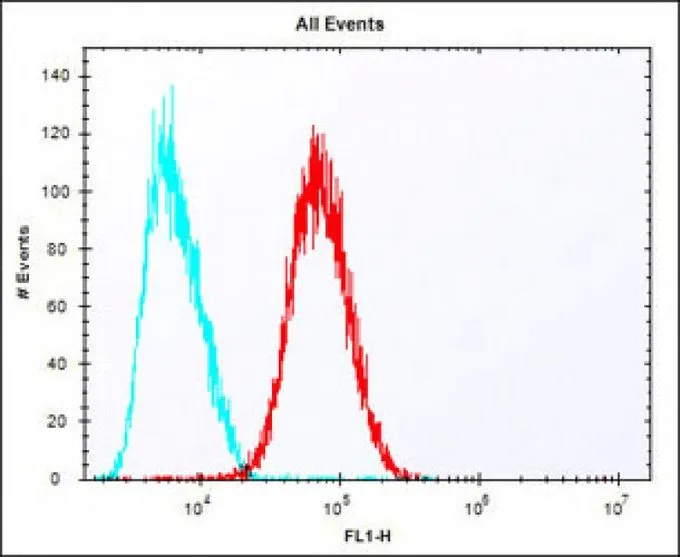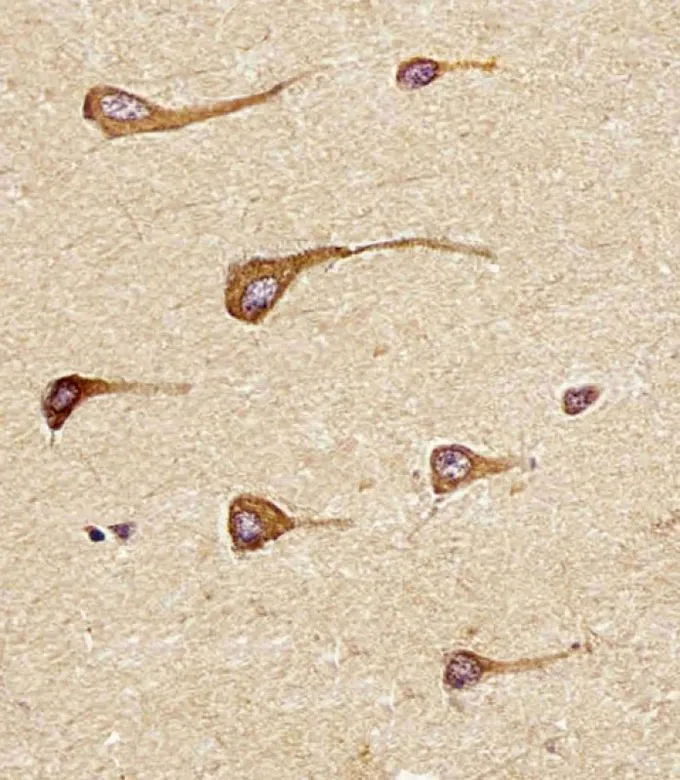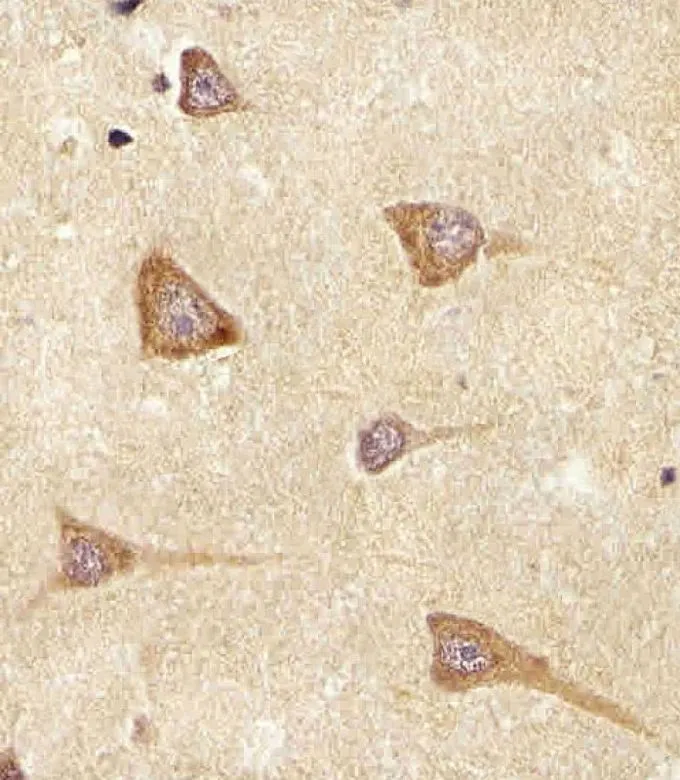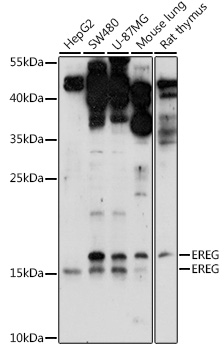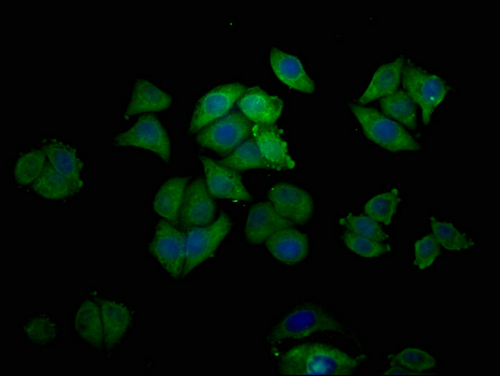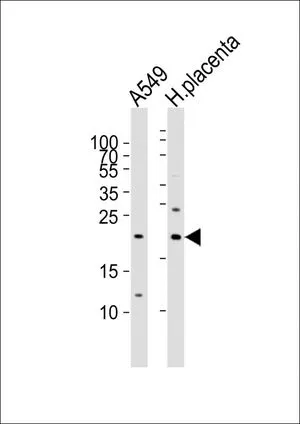
WB analysis of various samples using GTX16256 Epiregulin antibody. Lane 1: A549 whole cell lysates Lane 2: human placenta lysates Loading : 20 microg per lane Dilution : 1:1000
Epiregulin antibody
GTX16256
ApplicationsFlow Cytometry, Western Blot, ImmunoHistoChemistry, ImmunoHistoChemistry Paraffin
Product group Antibodies
ReactivityHuman
TargetEREG
Overview
- SupplierGeneTex
- Product NameEpiregulin antibody
- Delivery Days Customer9
- Application Supplier NoteIHC-P: 1:10-1:50. FACS: 1:25. *Optimal dilutions/concentrations should be determined by the researcher.Not tested in other applications.
- ApplicationsFlow Cytometry, Western Blot, ImmunoHistoChemistry, ImmunoHistoChemistry Paraffin
- CertificationResearch Use Only
- ClonalityPolyclonal
- ConjugateUnconjugated
- Gene ID2069
- Target nameEREG
- Target descriptionepiregulin
- Target synonymsEPR, ER, Ep, proepiregulin
- HostRabbit
- IsotypeIgG
- Protein IDO14944
- Protein NameProepiregulin
- Scientific DescriptionThis gene encodes a secreted peptide hormone and member of the epidermal growth factor (EGF) family of proteins. The encoded protein is a ligand of the epidermal growth factor receptor (EGFR) and the structurally related erb-b2 receptor tyrosine kinase 4 (ERBB4). The encoded protein may be involved in a wide range of biological processes including inflammation, wound healing, oocyte maturation, and cell proliferation. Additionally, the encoded protein may promote the progression of cancers of various human tissues. [provided by RefSeq, Jul 2015]
- ReactivityHuman
- Storage Instruction-20°C or -80°C,2°C to 8°C
- UNSPSC12352203

